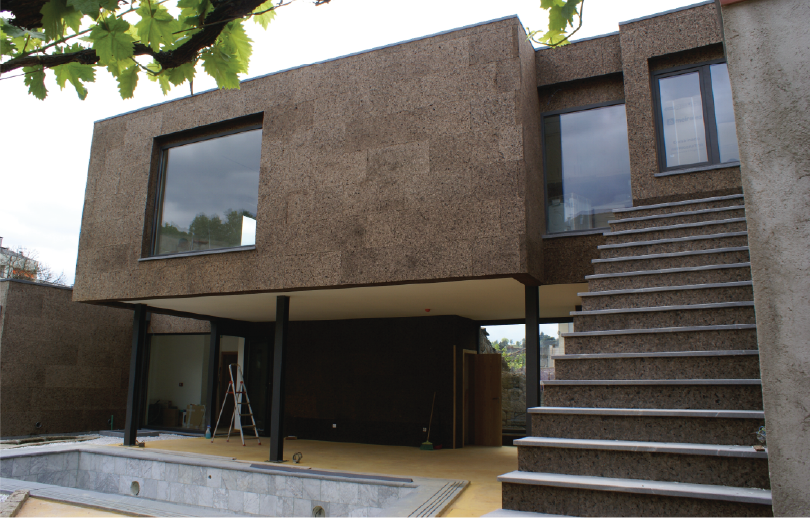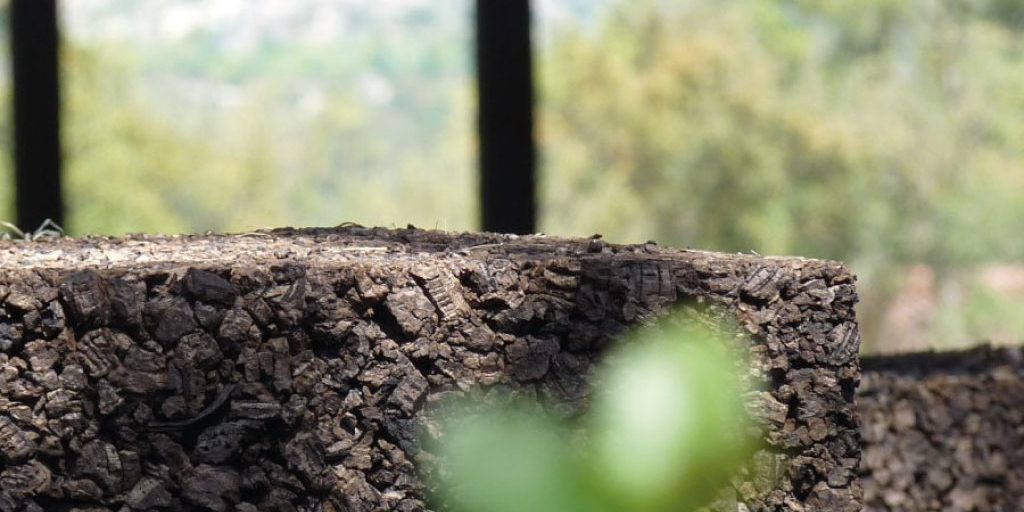Expanded cork has all sorts of fantastic qualities when used for insulation, but of course the most important one will always be how well it actually insulates in comparison to other options. Whilst there are some synthetic options for insulation that will outperform all natural (environmentally friendly) options, expanded cork is one of the better performers in terms of R-value compared to other natural options. With expanded cork you also get a range of benefits that many alternative options (both synthetic and natural cannot offer):
– 100% natural and recyclable
– Carbon negative (the cork trees do not die when the bark is removed)
– The cork forests sustain a unique ecosystem and present desertification of arid areas
– Provides acoustic and vibration insulation as well as thermal insulation
– Mechanical stability and almost indefinite longevity
– Permeable to water vapour to allow a building to breath
– No impact on indoor air quality
– Can be fitted externally, internally or in cavity walling & suitable for floors, ceilings and walls

The R-value of an insulation material is defined as “how well a two-dimensional barrier, such as a layer of insulation, a window or a complete wall or ceiling, resists the conductive flow of heat” – that is to say how readily will heat be transferred from one side of the material to the other. The R-value rates the insulation properties of a material per inch of thickness and RSI-value per mm of thickness. The higher the R-value, the better the material insulates. So here are R and RSI-values for some different thicknesses of expanded cork:
| Expanded cork thickness inches/mm | R-value (°F⋅ft2⋅h/BTU) – imperial | RSI-value (K⋅m2/W) – metric |
| 1′ / 25mm | 3.4 | 0.60 |
| 2′ / 50mm | 7.1 | 1.25 |
| 4′ / 100mm | 14.2 | 2.50 |
| 8′ / 200mm | 28.4 | 5.00 |
Using the R or RSI value, you can compare expanded cork to other insulation options. Below, are some alternatives with their insulation performance – the values are somewhat approximate as there are different specifications and in some cases the application method can be different, so this just gives a rough idea:
| Insulation material in 1 inch / 25mm | R-value (°F⋅ft2⋅h/BTU) – imperial | RSI-value (K⋅m2/W) – metric |
| Brick | 0.20 | 0.03 |
| Straw bale | 1.45 | 0.26 |
| Polyethylene foam | 3.00 | 0.52 |
| Rock wool loose fill | 3.40 | 0.60 |
| Expanded cork | 3.40 | 0.60 |
| Sheep’s wool Batt | 3.70 | 0.65 |
| Extruded expanded polystyrene (XPS) low-density | 4.60 | 0.80 |
| Polyurethane rigid panel (pentane expanded) initial | 6.80 | 1.20 |
| Vacuum insulated panel | 66.00 | 8.80 |
Choosing your insulation material will always be a balance between price, insulation capacity, ease of insulation and environmental considerations – expanded cork will generally not be the cheapest option (see our expanded cork prices here), but it can become a compelling option when you take into consideration its longevity and the fact that it is one of the most environmentally friendly options available. Please contact us for more information.








